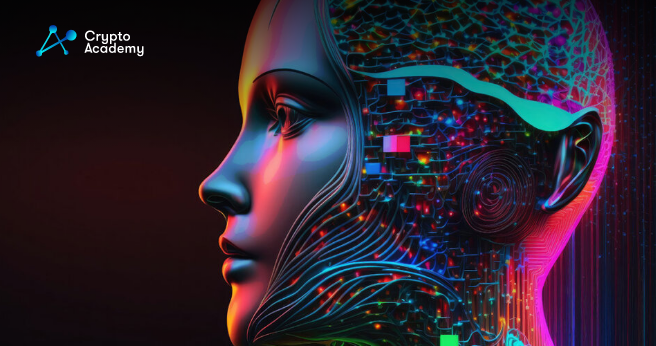Changpeng “CZ” Zhao and OECD discuss Artificial Intelligence (AI) and blockchain governance in a recent interview.
Members of the OECD’s AI Policy Observatory and Blockchain Expert Board have collaborated to produce a joint vlog series on Blockchain and AI. These groups significantly contributed to the development of the OECD Recommendation on Blockchain and DLT, as well as the OECD AI Policy Principles. With their formal adoption by OECD countries and beyond, these documents have established the first binding intergovernmental legal standards that enable public and private actors to develop future-ready, cohesive, and compliant global systems.
In this second part of the series, OECD interviewed Binance’s founder and CEO, Changpeng “CZ” Zhao. The discussion revolves around the regulatory concerns associated with both AI and blockchain, particularly focusing on the digital asset domain.
The Importance of AI and Blockchain Governance Initiatives
As both AI and blockchain technologies continue to evolve and be implemented at a rapid pace, it becomes essential to consider their development and regulation. Legislators and regulators face the challenge of keeping up with the accelerated growth of these technologies.
AI governance initiatives often emphasize the ethical utilization of AI technology and its potential adverse effects on society. Policymakers must strive to better understand AI technologies and how they can contribute to the common good. The Global Partnership on AI (GPAI) is addressing this need by releasing policy recommendations and position papers. Numerous ethical initiatives, such as Orbu, are investigating the intersection of AI and blockchain to develop ethical AI solutions.
OECD AI Principles: The Organisation for Economic Co-operation and Development (OECD) has formulated a set of principles for the responsible development and use of AI, known as the “OECD AI Principles.” These principles aim to foster transparency, accountability, and human-centricity in the development and application of AI. In 2019, G20 countries adopted these principles as the foundation for their guidelines.
Global Partnership on AI (GPAI): GPAI is a multi-stakeholder initiative that seeks to advance the responsible development and use of AI. The partnership unites governments, civil society organizations, academics, and the private sector to work together on AI governance, research, and capacity-building.
IEEE Global Initiative on Ethics of Autonomous and Intelligent Systems: This initiative, established by the Institute of Electrical and Electronics Engineers (IEEE), encourages responsible AI development and use. It offers guidelines for the ethical design, development, deployment, and use of AI systems.
Partnership on AI: This global organization brings together leading tech companies, academics, and researchers to address the ethical and societal implications of AI. It provides guidelines and best practices for the responsible development and use of AI.
Blockchain Governance Initiatives for Governments and Corporations
Blockchain governance deals with issues such as scalability, security, and the management of decentralized networks. Initiatives like the Web3 Governance Forum and Decentralized Autonomous Organizations (DAOs) support decentralized decision-making and community-based governance.
Decentralized Autonomous Organizations (DAOs)
DAOs are digital organizations governed by rules encoded on a blockchain. They are decentralized, meaning that control does not lie with any single individual or entity, but rather with a group of stakeholders who collectively make decisions for the organization. They are autonomous, running without the need for human intervention once the rules have been established.
DAOs offer a new model for decentralized decision-making and governance. In traditional organizations, a small group of individuals or a board of directors make the decisions. In a DAO, decisions are made by holders of the network’s native cryptocurrency or tokens, enabling a decentralized decision-making process.
For governments, DAOs may present an alternative method for managing public services and resources, such as through decentralized voting systems or digital identities. They may also increase transparency and accountability in government decision-making.
For corporations, DAOs may offer a way to decentralize decision-making and enhance shareholder engagement. They may also improve transparency and accountability in corporate decision-making.
DAOs, as a relatively new concept, have yet to reveal their full potential. However, they have the ability to provide a novel model for decentralized decision-making and governance for various industries and organizations.
The OECD Recommendation on Blockchain and other DLT
The OECD Recommendation on Blockchain and other DLT offers guidance to all actors in the Blockchain ecosystem, including governments, industry, academia, and civil society. Moreover, it responds to the rapid development and increasing use of this technology and its applications by providing a clear and coherent policy framework for responsible Blockchain innovation and adoption. This prevents and mitigates risks while preserving incentives to innovate, collaborate, and compete. The Recommendation is the first cross-sectoral international policy standard for Blockchain, recognizing the technology’s wider impacts and uses beyond financial market issues.
The Recommendation addresses six key issues relevant to all Blockchain actors:
- Compliance and Coherence
- Governance, Transparency, and Accountability
- Interoperability
- Digital Security and Privacy
- Education and Skills Development
- Environmental impact
Additionally, the Recommendation contains policy suggestions for governments establishing or implementing policy measures related to Blockchain innovation and adoption, considering the importance of technology neutrality.

